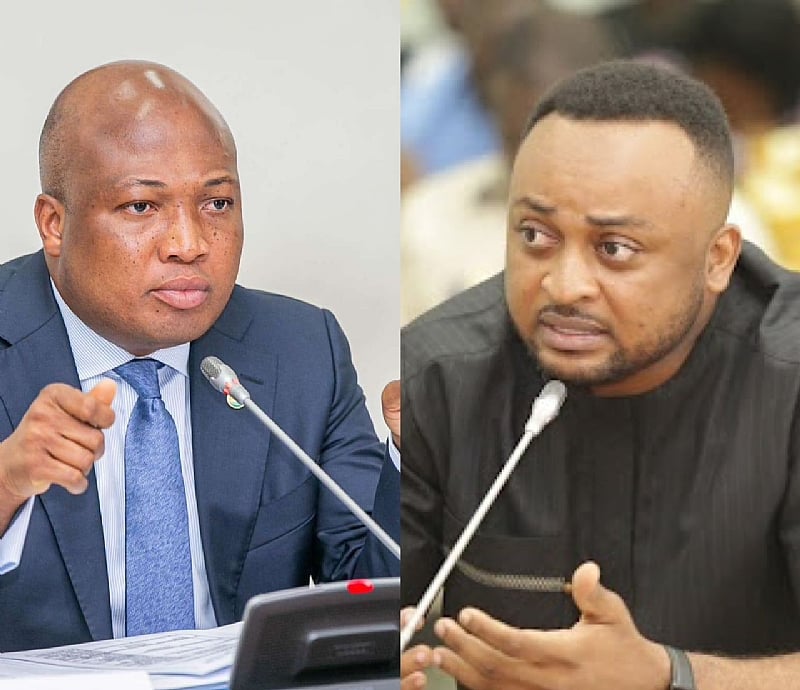The controversy surrounding the financial dealings of Ghanaian politicians has reignited with accusations and counter-accusations flying between members of opposing political factions. The spark was ignited by Samuel Okudzeto Ablakwa, the Minister-designate for Foreign Affairs, during his vetting process, where he disclosed residing in a rented property at the upscale Airport Hills residential area in Accra for the past eight years. This revelation drew sharp criticism from Vincent Ekow Assafuah, the Member of Parliament for Old-Tafo and a member of the Appointments and Vetting Committee, who accused Ablakwa of dishonesty and hypocrisy.
Assafuah contended that Airport Hills is primarily owner-occupied, with a minimum rent of US$15,000, making it improbable for Ablakwa to have rented a property there for such an extended period. He questioned the source of Ablakwa’s income, insinuating that if he could afford such exorbitant rent, then Ghanaians owed an apology to former Sanitation Minister Cecilia Abena Dapaah, who had faced public scrutiny and criticism over the discovery of US$1 million in cash in her home. Assafuah framed this as a test of the public’s consistency in holding public officials accountable for their wealth, arguing that accepting Ablakwa’s rental claim without question while previously condemning Dapaah would be hypocritical.
The controversy deepened with Assafuah’s further allegations against Ablakwa, accusing him of fiscal irresponsibility despite presenting himself as a champion of prudent financial management. Assafuah pointed to Ablakwa’s choice to fly business class to London immediately after his vetting, estimating the cost at around GH¢120,000 compared to an economy class fare of GH¢27,000. He portrayed this as a stark contradiction to Ablakwa’s public pronouncements on saving public funds and questioned his credibility as a fiscal watchdog.
Assafuah’s criticisms extended to Ablakwa’s colleague, Sam George, although his accusations against George were less specific. He expressed strong opposition to the approval of both Ablakwa and George, predicting that their confirmation would be highly contested and unlikely to achieve consensus within the Appointments and Vetting Committee. This foreshadows a potentially protracted and divisive confirmation process for the two nominees.
This incident underscores the deeply entrenched partisan divisions within Ghanaian politics and the public’s sensitivity to issues of wealth and accountability among public officials. The contrasting reactions to the financial circumstances of Dapaah and Ablakwa highlight the potential for selective outrage based on political affiliations. It also raises concerns about the transparency and consistency in scrutinizing the wealth of politicians, regardless of their party allegiance.
The ongoing debate surrounding Ablakwa’s residency and travel arrangements, juxtaposed with the previous controversy surrounding Dapaah’s wealth, underscores the complex interplay of public perception, political posturing, and accountability in Ghana’s political landscape. It remains to be seen how this controversy will unfold and whether it will lead to a more rigorous and impartial examination of the financial dealings of all public officials. The public’s response to these developments will likely shape the future discourse on wealth, transparency, and accountability within the political sphere.














